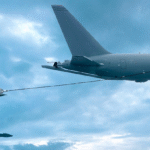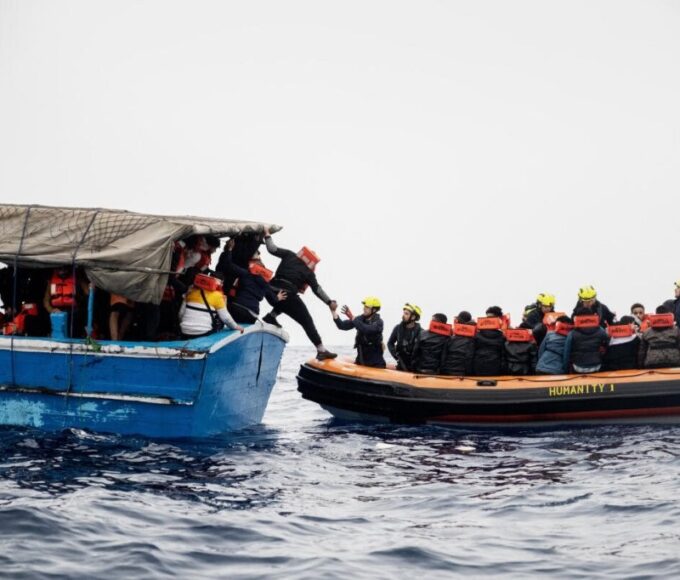
THE STRATEGIC IMPORTANCE OF DJIBOUTI’S PORTS
Djibouti, a small nation located on the Horn of Africa, commands an influence that far exceeds its size. Its coastline along the Bab el-Mandeb Strait the narrow maritime corridor linking the Red Sea to the Gulf of Aden and the wider Indian Ocean places it at the heart of global trade routes. Nearly ten percent of all seaborne commerce passes through these waters each year, including vital oil shipments from the Middle East to Europe and Asia. For centuries, control of this gateway has been coveted by maritime powers, but in the twenty-first century, it has become one of the most strategically concentrated naval zones on earth.
Djibouti’s ports are the backbone of its growing importance. The Port of Djibouti and the Doraleh Multipurpose Port handle a diverse flow of goods from bulk cargo to containers and have undergone major modernization in recent years. The Doraleh Container Terminal, equipped with Deepwater berths and advanced handling systems, has greatly expanded capacity and efficiency. More than fifteen billion dollars in infrastructure investments have transformed the nation’s coastline, anchored by the sprawling Djibouti International Free Trade Zone, the largest of its kind in Africa. Covering nearly five thousand hectares, the free zone is designed to link sea trade to East Africa’s interior through modern road and rail networks.
Related Article: WOMEN IN DEFENCE –MARITIME WOMEN: BREAKING WAVES IN NAVAL LEADERSHIP
That strategic utility has turned Djibouti into one of the world’s most crowded military enclaves. The United States operates Camp Lemonnier, its only permanent base in Africa, serving as a hub for counterterrorism, surveillance, and logistics across the continent. China, meanwhile, established its first overseas military outpost there in 2017, a symbolic milestone in its expanding global footprint. France maintains a long-standing garrison dating back to colonial times, while Italy, Japan, and Germany have all developed facilities of their own. Even the United Kingdom and Spain maintain periodic deployments.
For Djibouti itself, the ports are not only strategic assets but economic lifelines. The country’s prosperity is closely tied to Ethiopia, which relies on Djibouti’s ports for roughly ninety-five percent of its imports and exports. The arrangement generates around two billion dollars in annual fees, accounting for more than eighty percent of Djibouti’s public revenue. Yet this dependence is double-edged. Any disruption in port access could ripple across East Africa’s trade networks, while Ethiopia’s growing interest in alternative outlets such as Somaliland’s Berbera port poses long-term competitive and political challenges.
Maritime security is another pillar of Djibouti’s importance. Located near some of the world’s most dangerous waters, the country plays a central role in international efforts to combat piracy, arms trafficking, and human smuggling in the Gulf of Aden. Its ports serve as bases for European Union and NATO naval patrols, as well as multinational counterterrorism operations. In recent years, Djiboutian officials have deepened cooperation with regional partners, including Somaliland and Yemen, to strengthen joint maritime surveillance. Yet the same geography that offers opportunity also invites risk. Proximity to Yemen’s civil war and the Red Sea’s flashpoints exposes Djibouti to the spill over of instability, including Houthi-linked activity and wider geopolitical rivalries between Iran, the Gulf states, and Western powers.
Much of Djibouti’s maritime transformation has been powered by international partnerships. China’s Belt and Road Initiative has financed extensive port and trade zone expansions, integrating Djibouti into Beijing’s global infrastructure network. The involvement of companies such as China Merchants Group and DP World reflects a blend of economic pragmatism and strategic positioning, as foreign investors compete for access to a corridor critical to global supply chains. Agreements under the African Continental Free Trade Area framework further highlight Djibouti’s ambition to serve as a commercial bridge between Africa and the wider world. Alongside economic engagement, foreign bases have provided training, technology transfers, and equipment to bolster the country’s coast guard an essential tool for maintaining maritime security amid rising threats.
Still, challenges persist. Tensions between foreign powers operating in close proximity occasionally surface, while disputes over port management such as the legal battle between Djibouti and the UAE’s DP World reveal the fragility beneath the façade of progress. Environmental pressures from increasing shipping traffic, combined with regional instability and sporadic piracy resurgences, also threaten long-term sustainability.
For now, Djibouti’s ports remain among the most strategically significant maritime assets in the world. Situated at the crossroads of global trade, they anchor a network that connects continents, fuels economies, and underpins international security. The challenge for this small but pivotal nation lies in maintaining balance leveraging the benefits of foreign partnerships while safeguarding national autonomy.
King Richard Igimoh, Group Editor ALO
King Richard Igimoh, Group Editor African Leadership Organisation is an award-winning journalist, editor, and publisher with over two decades of expertise in political, defence, and international affairs reporting. As Group Editor of the African Leadership Organisation—publishers of African Leadership Magazine, African Defence & Security Magazine, and Africa Projects Magazine—he delivers incisive coverage that amplifies Africa’s voice in global security, policy, and leadership discourse. He provides frontline editorial coverage of high-profile international events, including the ALM Persons of the Year, the African Summit, and the African Business and Leadership Awards (ABLA) in London, as well as the International Forum for African and Caribbean Leadership (IFAL) in New York City during the United Nations General Assembly.
Recent Posts
Categories
- Air & Aerospace17
- Border Security15
- Civil Security6
- Civil Wars4
- Crisis5
- Cyber Security8
- Defense24
- Diplomacy19
- Entrepreneurship1
- Events5
- Global Security Watch6
- Industry8
- Land & Army9
- Leadership & Training5
- Military Aviation7
- Military History27
- Military Speeches1
- More1
- Naval & Maritime9
- Policies1
- Resources2
- Security12
- Special Forces2
- Systems And Technology9
- Tech6
- Uncategorized6
- UNSC1
- Veterans7
- Women in Defence9
Related Articles
THE RED SEA AND HORN OF AFRICA: HOTSPOTS OF MARITIME CONFLICT
By December 2025, the Red Sea and the Horn of Africa sit...
ByKing Richard Igimoh, Group Editor ALODecember 23, 2025NAVAL FORCES EMERGE AS LIFELINES IN GLOBAL HUMANITARIAN RESCUE MISSIONS
Modern navies are increasingly defined not only by their combat power but...
ByKing Richard Igimoh, Group Editor ALONovember 20, 2025SUBMARINE PROGRAMMES IN AFRICA: PRESTIGE OR NECESSITY?
Africa’s naval power has long rested on surface vessels, yet the rise...
ByKing Richard Igimoh, Group Editor ALOSeptember 23, 2025AFRICA’S GROWING NAVAL AMBITIONS: WHO LEADS THE PACK?
Africa’s coastlines support millions of families on the continent. From a thriving...
ByKing Richard Igimoh, Group Editor ALOSeptember 15, 2025












